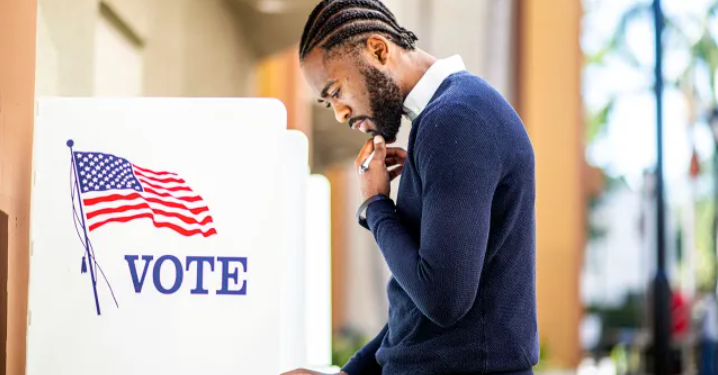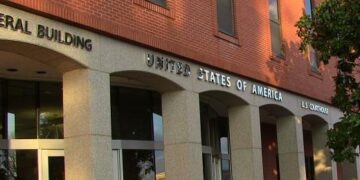Sep 5, 2024 Story by: Editor
While Black voters in the United States are frequently viewed as a monolithic group, a recent national survey has revealed distinct clusters within this demographic: legacy civil rights, secular progressives, next-gen traditionalists, rightfully cynical, and race-neutral conservatives.
Katrina Gamble, CEO of Sojourn Strategies, emphasized during a press conference on Wednesday, “These clusters indicate that there are incredible differences within the Black community, in terms of how people think about democracy and their role in our democracy.”
The survey, which included 2,034 registered voters and 918 unregistered Black voters, found that 41% of participants identified as legacy civil rights voters, predominantly older than 50, and exhibiting the highest voter turnout rates. This group is notably inclined to believe in the power of their vote to instigate change. Conversely, the rightfully cynical cohort, comprising 22% of respondents, represented the youngest group and displayed the lowest likelihood of voting. Their experiences with racism in the workplace and from law enforcement led them to feel that their vote carries little significance.
The next-gen traditionalists, accounting for 18% of those surveyed, emerged as the most religious yet least educated group, primarily consisting of millennial and Generation Z voters. This cluster reported low voter turnout and moderate faith in the influence of their vote. The secular progressives, making up 12% of respondents, were the most educated, largely consisting of women who were very likely to participate in elections.
Finally, the race-neutral conservatives, who represented 7% of respondents, were primarily male, the second oldest group, and the most conservative in their views. They demonstrated a moderate voter turnout and tended to attribute systemic challenges to individual choices.
During the press conference, community organizations from Pennsylvania, Georgia, and Michigan discussed the importance of customizing mobilization efforts to meet the needs of different Black voter types. In Pennsylvania, the grassroots organization Power Interfaith plans to leverage the survey findings to connect with 50,000 eligible Black voters statewide. As part of their strategy, they will engage Black Muslim and Christian congregations to enlist 2,000 hosts for soul food dinners aimed at young voters.
Rev. Dr. Gregory Edwards, interim executive director of Power Interfaith, noted, “For Black folk, food actually is our love language. Something magical happens when folks sit around the dining room table with some good food; it creates space for conversation about politics, about relationships, about dreams, hopes and aspirations that aren’t happening elsewhere.” Hosts from the legacy civil rights cluster will utilize the survey results to guide discussions with younger attendees at these dinners.
In Georgia, the New Georgia Project, a voter engagement organization, intends to adapt its canvassing, phone, and text outreach strategies based on the research findings. Ranada Robinson, the group’s research director, stated, “We’re able to train our canvassers and others to talk to people and to listen to them and to make sure that they are addressing what they care about, versus some traditional operations that may just talk at people.”
Michigan’s grassroots group Detroit Action will hold a series of events called Just Effing Care Fest to engage rightful cynics. These events will feature local influencers and artists, fostering discussions among young Black individuals about the issues they care about most. “Young Black community artists have a strong influence with the rightful cynics,” explained Branden Snyder, the group’s senior advisor. “They’re able to talk about how they’ve transformed their own cynicism into artistic expression, building a world that should be.”
According to a recent Pew Research Center survey, Black registered voters largely prefer Kamala Harris over Donald Trump. However, Gamble clarified that the Black values research is not aimed at supporting any specific campaign or political party.
Instead, the survey seeks to empower the Black electorate by highlighting the significance of their vote. “It really centers our understanding. How do we not only increase Black folks across the segments’ perceptions of their own power, but also get this research into the hands of organizations that can organize them into having actualized power in our democracy and our elections?” Gamble remarked. Source: The Guardian

















